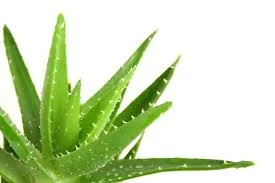What is aloe vera and what are its qualities?
We often see a lot of posts on Facebook these days about the rules and materials for making hand sanitizers, each of which contains aloe vera along with other ingredients. So from what you understand here, aloe vera works like a natural cleanser that helps to destroy and disinfect viruses. This is because aloe vera naturally contains some special ingredients to kill bacteria, viruses, and fungi. Let's not know how important this aloe vera is playing for our human body.
What are the nutrients in aloe vera?
Aloe vera acts as a natural cleanser in the human body and is able to increase immunity by de-oxidizing toxins. Which plays a special role in freeing us from various diseases. This is because aloe vera contains a variety of vitamins such as vitamins A, B, C, E, vitamin B-12, saponins, lignin, and folic acid. Of these, Vitamin B-12 in particular is rarely found in plants, which is essential for our human body. So why aren't we adding aloe vera to our daily diet to increase immunity, especially during the panic of this coronavirus? So we need only the external protection of the body, not the internal protection of the body? I think it is necessary. So let's add aloe vera to our daily diet to boost our immunity and keep ourselves healthy and keep others well.The following are some of the notable health benefits of aloe vera. Let's take a look at the health benefits of aloe vera?
Increases body hydration:
Aloe vera helps the body provide adequate moisture, which helps keep the detoxification processes in the liver and kidneys running smoothly.Antibacterial and antioxidant properties include:
Aloe vera contains a beneficial antioxidant called polyphenols. In addition to these polyphenols, other similar compounds found in aloe vera play a key role in preventing the growth of bacterial infections in humans.Sources of Vitamin B12:
Aloe vera is one of the only vegetarian sources of B12, a vitamin needed for our red blood cell and DNA production, and is found mostly in meat.Helps in healing cuts and burns:
Aloe vera can also be used as a topical medicine by applying gel to the skin. It has been used since ancient times to treat wounds, cuts, and burns, including sunburn.Helps maintain skin texture:
Topical aloe vera gel helps to slow down the aging process with regular use. Regular use of aloe vera gel helps to increase collagen production and regular use improves the elasticity of the skin.
Lowers blood sugar levels:
Aloe vera gel and juice successfully help lower blood sugar levels, which also helps insulin resistance in people with type 2 diabetes. Aloe vera helps control blood sugar levels as well as increase insulin sensitivity.Helps in weight control:
In addition to these benefits, aloe vera juice is considered a sustainable way of weight management which has made it an integral part of the diet charts of overweight people around the world.Dental plaque resistance:
Tooth decay, as well as gum disease, affects almost everyone in the world. One of the best ways to avoid oral infections is to prevent plaque formation which is a bacterial biofilm in the teeth. Aloe vera is effective in reducing the problem of dental plaque by killing the harmful bacteria in the mouth.Cancer Wound Treatment:
Most people have experienced mouth sores or canker sores at least once in their lives. It mostly affects the bottom of the lips or the inside of the mouth and can sometimes be very painful. Several studies have shown that aloe vera gel helps accelerate the cancer healing process.Reduces constipation:
Aloe vera gel plays a very important role in the treatment of constipation. Latex is the sticky yellow residue under the skin of aloe vera leaves and it contains aloe vera and barbells which are very effective in reducing constipation.From the above discussion, we can see that aloe vera plays an important role in improving our daily life and enhancing our immune system.
.jpg)


Comments
Post a Comment